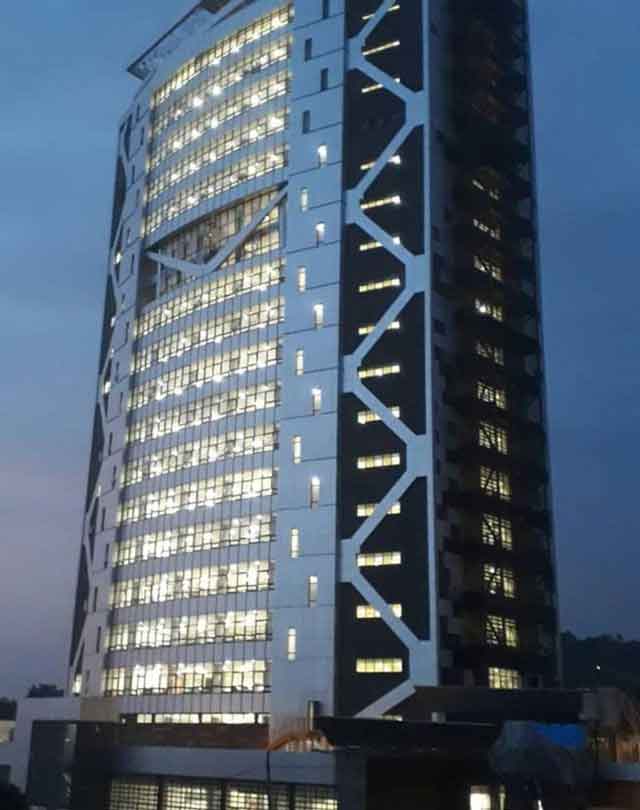KAMPALA, July 3, 2024 – The Uganda Revenue Authority [ URA ] still wants to charge withholding tax on dividends and interest earned from savings of SACCO members even after the Attorney General, the Chief Governor Advisor, said it is not applicable.
The exemption of dividends and interest of the SACCOs from tax was inserted in the Income Tax Amendment Act, 2017 to encourage savings in the informal sector, which would widen financial inclusion and economic productivity in the country.
Over the years, the Finance ministry has been proposing to rescind the 2017 Income Tax Amendment which is supposed to be in force up to June 30, 2027. This means that the income of SACCOs will thereafter be subject to corporate income tax at 30 percent as well as withholding tax [WHT] where applicable.
There has been a continued attempt by URA regional offices to demand the said tax from SACCOs and members, including big ones like UPDF’s Wazalendo SACCO, which had to ask Cabinet, particularly President Yoweri Museveni to intervene in the matter.
For example, on May 21, 2024, Mugisha Richard Nkunya, URA Manager South West Region asked Barnabas Ainomugisha, one of the executives of OMIPA Cooperative Savings and Credit Society Limited in Isingiro town council to remit withheld tax on dividends and interest paid to all SACCO members, citing Section 118 and Section 117 [1] of the Income Tax Act.
“We…advise you to remit withheld tax on dividends and interest paid to all SACCO members by Tuesday 28, May 2028 in accordance with Section 118 and Section 117 [1] of the ITA to avoid further accumulation of interest,” he said.
Kunya in his letter ignored the communication of the Permanent Secretary and Secretary to the Treasury Ramathan Ggoobi, who after receiving advice from the Attorney General on the scope of the tax exemption provided under Section 21 (1) [ad] of the ITA, Cap.340, also advised the URA Commissioner General John Musinguzi Rujoki not tax dividends and interests of SACCOs, and members.
How the Attorney General guided
Under the doctrine of mutuality, all contributors to the common fund must be entitled to participate in the surplus and all the participants in the surplus must be contributors to the common fund, in other words, there must be complete identity between the contributors and the participants. Accordingly, the exemption of income of a SACCO under Section 21 (1) (ad) of the Income Tax Act extends to the distributions of such income and payments to members of the SACCO.
Whereas Section 60 of the Income Tax Act imposes a tax even under the mutuality arrangement, Section 21 (1) of the same Act exempts the income from income tax and, therefore, Section 21 (1) (ad) establishes an exception to Section 60 (1) thereof.
The exemptions provided under Section 21 (1) (ad) of the Income Tax Act, Cap 340 apply to all SACCOs, and not just Wazalendo SACCO.
Following the guidance above, Ggoobi would in a letter dated January 16, 2024, urge URA to take the Attorney General’s advice. “The purpose of this letter is to draw your attention to the position of the law as per Attorney General’s guidance cited above,” said Ggoobi.
Meanwhile, Uganda Cooperative Savings and Credit Union [UCSCU] which is the umbrella body of SACCOs in the country insists SACCOs were exempted from the above taxes, and therefore should not yield to intimidation.
Writing to SACCO Chairpersons and CEOs not to yield to URA pressure, Dr. Sylivester Ndiroramukama, CEO of UCSCU said: “We write to you on the above, based on the letter from the Permanent Secretary/Secretary to the Treasury dated 16th January 2024 to the Commissioner General- URA referring to Attorney General’s interpretation and guidance on the same matter, the Union [UCSCU] advises its member SACCOs not to withhold tax on their dividends and interest on savings with effect from 16th January 2022.”
UCSCU which has over 1,300 members also had to instruct its lawyers, Moriah Advocates to ask URA, particularly its regional heads to comply with the Attorney General’s advice and vacate any agency notices sent to SACCOs’ bank accounts.
Due to the above tax exemption, SACCOs, which operate according to the cooperative principles and values, have reported the benefits of the exemption including building offices, buying IT items like computers, photocopiers, and printers, among others. Some have started lobbying government so that the said tax exemption continues beyond 2027.
https://thecooperator.news/fish-maw-traders-petition-parliament-over-taxes/
Buy your copy of thecooperator magazine from one of our country-wide vending points or an e-copy on emag.thecooperator.news
